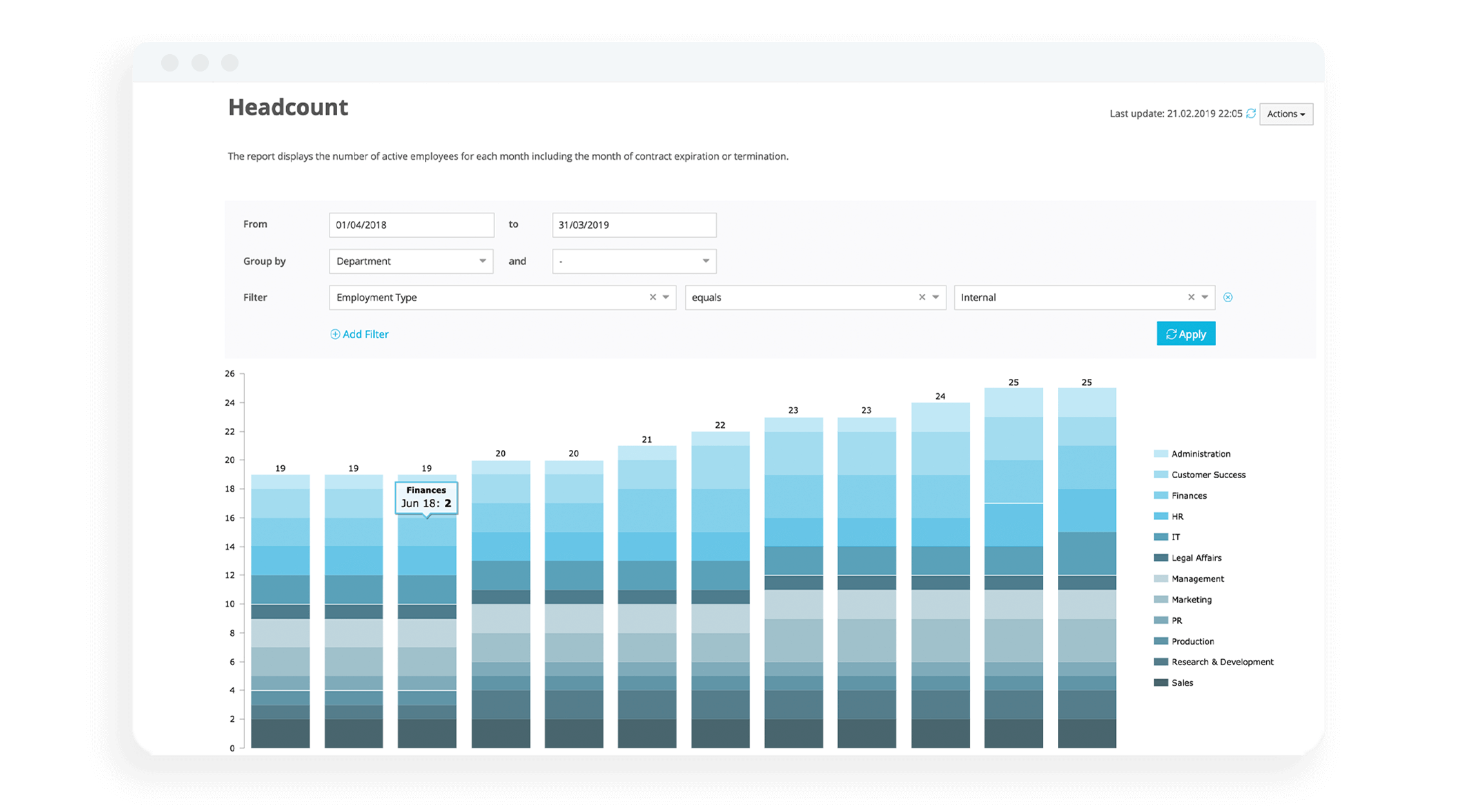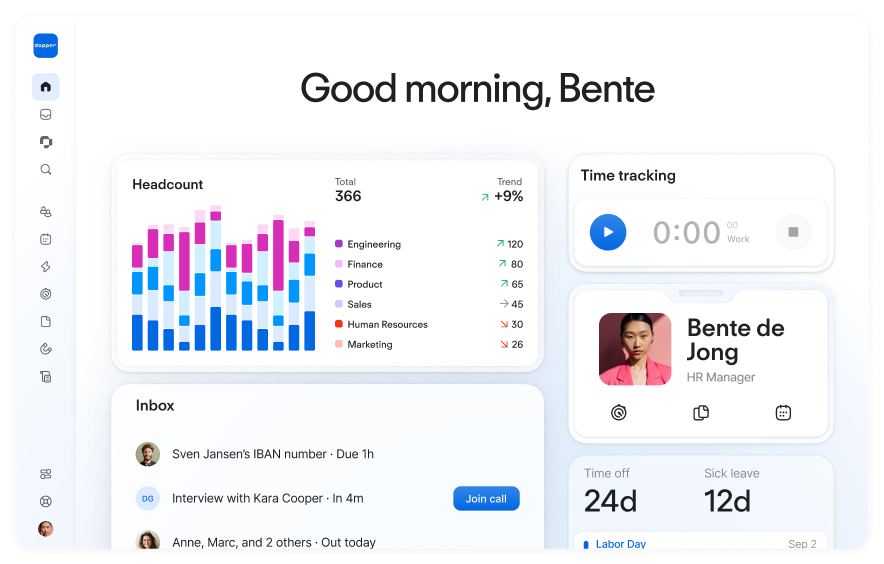Are Workations Becoming the Norm?

The rise of the workation coincides with the idea that working remotely could also mean working from anywhere. But, have workations become the dominant form of remote work? In this article, we dive into the data, explain the current context and how organisations should tackle the topic.
Key Facts
A workation is a relatively new concept that enables workers to complete assignments while enjoying their leisure time, often in a new and exciting location.
Employee workations fall under three categories, with their placement determined by how long they stay in the new setting.
Introducing workation can result in a happier and more productive workforce when done correctly.
Contents
- 1What Does Workation Mean?
- 2The Three Major Types Of Workations
- 3Who Is Eligible For A Workation?
- 4Requirements For A Workation
- 5What To Include In Your Workation Policy
- 6Workation: Advantages and Disadvantages
- 77 Important Tips For A Workation
- 8Frequently Asked Questions about Workation
- 9Finding the Balance Between Work and Relaxation
What Does Workation Mean?
As the name suggests, a workation is when employees combine their work with vacationing and visit a destination while still working. Often offered as packages, employers who offer workation report higher employee satisfaction, attract top talent and promote employee well-being.
The Three Major Types Of Workations
Workations are divided into three categories dictated by how long an employee works in a different location. Generally, the longer a workation is, the more organisation and planning is required before leaving. The three types of workations are:
Short-Term Workation. These only last a few days, with the employee usually not going farther than a short plane or train ride. Short-term workations are good for quick refreshers.
Medium-Term Workation. These typically last weeks to a month. Employees travel farther out, but typically not overseas. This extended time lets an employee relax and refresh before returning home.
Long-Term Workation. These periods last for several months and, occasionally, years. The long time away gives the employee the freedom to relocate nearly anywhere. However, long relocations require more comprehensive preparations.
Who Is Eligible For A Workation?
Eligibility for a workation generally depends on whether a job’s responsibilities can be performed while out of the office. However, employees who handle physical labour or require face-to-face time with clients or colleagues likely cannot take advantage of workation.
Requirements For A Workation
There’s a lot of work that goes into initiating a workation and ensuring it goes smoothly, including:
Setting up accommodations. Some workations can be spent in a hotel, while others require longer-term lodging.
Work setup. Consider the work setup before travelling so employees can properly sit and engage.
Reliable WiFi. Strong internet access is a must. Confirm that a hotel or similar lodgings have accessible, quality WiFi before booking.
Decide the schedule. Employees will have more flexibility to decide when they work during workation. Discuss their schedule ahead of time so everyone is on the same page before workation begins.
Proper timing. When’s the most convenient time for a workation? The best time to travel varies from person to person, depending on their role within the company. Timing also involves how busy the location may be. Popular destinations during peak travel season aren’t as conducive to work as they may be in the off season.
What To Include In Your Workation Policy
Workations are still a newer concept, so companies must set ground rules. Using an existing vacation policy as a template is possible, but workations are dissimilar enough to require careful consideration. A few things to keep in mind creating a policy are:
In what circumstances do employees have access to the different types of workation (Short-term, Medium-Term, Long-term)?
What’s the procedure for an employee to ask for a workation?
Who is eligible for a workation?
Which destinations are allowed on a workation?
How does the company handle health insurance for employees that go abroad?
Be Prepared for the Future of Work

Remote work is becoming a future task for companies. To enable HR to focus on strategic projects like this, Personio fundamentally simplifies your HR work and frees time for strategic tasks.
Book your demoWorkation: Advantages and Disadvantages
How can a workation policy impact your workforce?
Benefits of Workation
Increased productivity. Without distraction (and with the motivation of their new, beautiful setting), employees can get through their to-do lists faster.
Higher quality work. The physical environment can affect employee-well being. A new, exciting and refreshing place can be just what an employee needs to bring fresh perspectives and creative solutions to the table. A distraction-free environment also influences work quality, giving employees the mental space to focus, fine-tune and experiment with new approaches to their jobs.
Improved staff retention. The opportunity to travel is a significant work perk for many. Workation opportunities can increase overall job satisfaction, and the more satisfied they are with your company, the more likely they will remain long-term.
Challenges of Workation
Skewed work-life balance. Workations blur the lines between work and leisure time. Some employees can more easily separate the two than others. Those who have more trouble with this balance may not meet their deadlines.
Away from home obligations. Employees with significant responsibilities outside of work may not be able to enjoy a workation in the way it’s intended to be enjoyed.
Complicated travel planning. Extra steps are required to take a workation in many overseas locations. Visas and work permits may limit destination options for your team.
Time differences. An employee may find themselves working quite late or very early to meet your company’s standard work schedule.
7 Important Tips For A Workation
Any sort of travelling is susceptible to unexpected obstacles or setbacks. It takes careful consideration and organisation to ensure employee travel plans go off without a hitch so they can get the most out of it.
Implement these tips to better ensure workation plans go off without a hitch…
1. Have a Detailed Plan
Employees should know how they plan to handle work once they’re at their destination. A carefully considered work schedule helps the worker keep pace while on workation and keeps productivity high. They should stick with this plan to ensure that all stakeholders are on the same page.
2. Define a Goal
Help employees decide what they’d like to accomplish during their workation and create milestones so they can visualise their progress. Working toward a goal can help them plan their workation so there’s a healthy balance of work, fun and relaxation.
3. Decide The Time Frame
Use the initial planning phase of a workation to help the employee determine how long it should last. Generally, the length of the trip and the destination helps determine how much it would cost the company. You can also use company financial reports to decide how to budget around travel expenses.
4. Pick the Right Employee
Only approve workation requests from high potential employees who you know can balance results and leisure time. Travel is already relatively expensive, but workers should have increased productivity from working in a place without home distractions. If that improvement doesn’t happen or even worsens because they’re enjoying the scenery, it’s harder to recoup the expense.
5. Hold Workation Training Courses
Establish a course that instructs employees travelling to new locales on your workation policy. Set expectations for their work and behaviour in a new setting. If the employee travels overseas, use the course to inform them of local laws and regulations while informing them of their global health insurance options.
6. Inform The Rest Of Your Staff
Inform the employee’s team members and other stakeholders of the upcoming workation. Ensuring everyone understands the nature of a workation ensures that your staff is on the same page and can continue working with minimal disruption.
7. Consider Incentives
While workation is typically packaged, you can offer incentives to encourage employees to take advantage or to reward high performance. Upgrades and special additions to a workation trip could be offered in lieu of bonuses, for example.
Define Goals & Link Them to Bonus Payouts

Make your employees’ development visible by defining and tracking both qualitative and quantitative targets. If targets are linked to bonus payments, results are automatically transmitted to payroll.
Find out moreFrequently Asked Questions about Workation
What Is a Workation?
A workation is when an employee travels to a new location to work but gets to enjoy their new surroundings with leisure time in an exciting place.
What Is an Example of a Workation?
A workation can involve travelling from London to Vienna to work during typical operating hours while enjoying all the city has to offer on nights and weekends.
Do Workations Boost Productivity?
Yes. The change in locale helps refresh employees while the lack of distractions puts all their focus on their work.
Finding the Balance Between Work and Relaxation
A workation can effectively balance work and vacation time, letting the latter bolster the former. A change in scenery could be all an employee needs to improve their productivity because suddenly, the distractions from their homes are far away. Relaxing in a new location can also help reduce stress, letting them think more clearly and develop creative solutions for their tasks.
Disclaimer
We would like to inform you that the contents of our website (including any legal contributions) are for non-binding informational purposes only and does not in any way constitute legal advice. The content of this information cannot and is not intended to replace individual and binding legal advice from e.g. a lawyer that addresses your specific situation. In this respect, all information provided is without guarantee of correctness, completeness and up-to-dateness.
